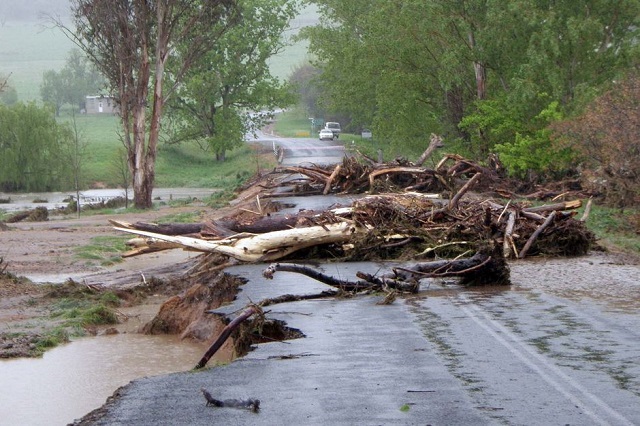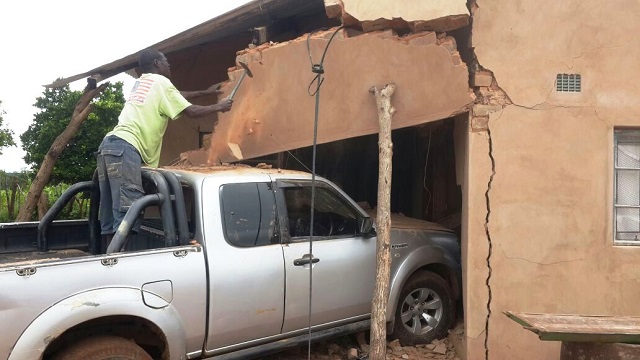EDITORIAL COMMENT: Let’s remain vigilant to tackle flood-related disasters

THE Meteorological Services Department has warned of heavy rains countrywide that are expected to continue during the better part of this week. Over the weekend, most areas received heavy downpours and the MSD has called for more vigilance and preparedness, particularly for rescue operations by those responsible. It said despite warnings and advisories, reports of drowning continue to be a serious cause for concern.
The MSD urged people to take their alerts seriously more so between now and the middle of February when the rains are expected to be intense. The rains are a result of the La Nina weather phenomenon which is causing massive precipitation in Southern Africa. Already the heavy rains, while welcome in the wake of last year’s drought, are destroying the maize crop in some districts and agronomists are wary of its effect on other early planted crops.
Heavy leaching is also synonymous with plenty of water and farmers certainly need fertilisers to mitigate the effect of these downpours. Flash floods have been wreaking havoc in some parts of Zimbabwe with both rural and urban dwellers bearing their brunt. Despite warnings not to cross flooded rivers, some motorists have been swept away by swollen rivers while there have also been reports of drowning.
The heavy rains which have been lashing the country are often accompanied by strong winds, hail and thunderstorms. Schools, clinics, roads, bridges and other infrastructure have been destroyed with children in some remote districts failing to go to school as a result of flooded rivers.
Lightning is one of the major killers of people in rural areas and already six members of a family were struck and killed by lightning while attending a funeral in Binga. This is in spite of awareness campaigns by the Civil Protection Unit about the dangers of sheltering under tall trees or other natural lightning conductors during violent storms.
Water-borne diseases such as typhoid have resurfaced in Harare in the wake of flooding in some parts of the capital. The disease has spread quickly due to the dilapidated sewer and water reticulation system. Some homes in low-lying areas in both the high and low density suburbs have been destroyed by raging floods.
Last Friday, we reported on the destruction caused by flash floods in the affluent Borrowdale Brooke suburb of Harare. Lands and Rural Resettlement Minister Dr Douglas Mombeshora was among the casualties of the floods with his home suffering massive damage and flooding in the Brooke. Most dams around the country are filling up quickly with some such as Lake Chivero already at full capacity and spilling. Bulawayo’s supply dams are also above 50 percent full and are projected to reach 100 percent capacity for the first time in a long while.
The CPU has urged people living in low-lying areas and river banks across the country, including parts of Borrowdale, to move to higher ground as it warned of more likely flooding.
CPU acting director Mrs Sibusisiwe Ndlovu said two dams around Hogerty Hill had been spilling for a fortnight now due to heavy rains that pounded Harare.
She said one of the dams breached on Wednesday last week, hitting residents in the low-lying areas along Crowhill Road and the Brooke. “We have since spoken to the residents in Borrowdale and warned them to be on high alert since the other dam is also spilling and could breach any time. We have also asked those who can to vacate to higher ground to avoid further loss of property or lives,” she said.
Mrs Ndlovu said the CPU was worried that some houses in the affluent suburb contributed to flooding as they were built on natural water courses. The CPU said most parts of the country had received more rains than expected.
In its latest warning on extreme flooding, the CPU said all its civil protection structures were on high alert. “The public is advised that homes in low-lying areas, near or inside rivers, on wetlands, on mountain slopes or at the edge of mountain slopes or foothills and on natural water courses, are extremely at risk of flooding therefore there is need to be on the lookout particularly at night, and timely move to higher ground,” said the CPU.
“Motorists are advised to take advantage of daylight travel as much as possible and travel at safe speeds. Children must be supervised at play, on their way to and from school. No attempt must be made to venture into flooded rivers,” it warned.
We urge members of the public to heed the warning from the CPU and take the necessary precautions to mitigate damage caused by floods and avoid loss of life. The Government should also take steps to minimise the damage to crops by availing inputs to farmers on time.











Comments